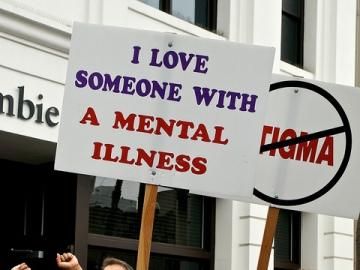
Section Branding
Header Content
Program Bridges Gaps In Mental Illness
Primary Content

Mental health advocates are identifying the 100 Southeast Georgians most seriously affected by mental illness.
A two-year pilot program aims to break the cycle of jail, life on the streets and hospitalization.
The program is a joint effort between the non-profit National Alliance for the Mentally Ill and the state Department of Behavioral Health and Developmental Disabilities.
Its goal is to bridge gaps in the state's mental health system.
The Alliance's Eric Spencer says, identified patients will get help from peer specialists, called navigators, to stay out of trouble.
"There are a lot of holes in community treatments," Spencer says. "The navigators are there to try to bridge the gap."
So far, the program's enrolled about 25 patients.
"They meet with the client, help them schedule appointments, find housing, meet their transportation needs and get a meaningful day, which is either a job or volunteer work," Spencer says.
The program, called Open Doors, costs about $4 million.
The state mental health agency and the Bristol-Myers-Squibb Foundation are sharing the cost.
A researcher from George Washington University is keeping track of area patients enrolled and not enrolled in the program to create case studies and comparisons.
If successful, the program could be replicated elsewhere.
Right now, it's only available in a 34 county region in Southeast Georgia.
Tags: Southeast Georgia, homeless, Savannah, Georgia Department of Behavioral Health and Developmental Disabilities, developmental disabilities, community mental health services, Department of Behavioral Health and Developmental Disabilities, GPB News, mentally ill, mental illness, Mentally ill residents, Homelessness, National Association for the Mentally Ill, Eric Spencer, recidivism
Bottom Content

